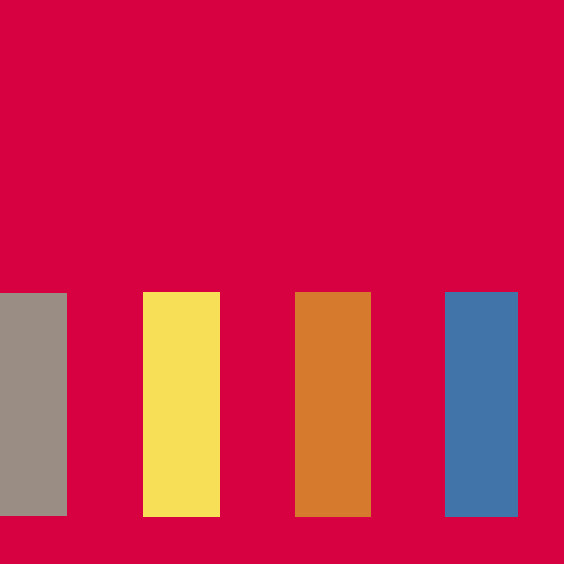Retrospective | ANIMAL REALITIES
LE SANG DES BÊTES aka BLOOD OF THE BEASTS
FR 1949, D: Georges Franju, Doc, 23’, original with English subtitles, DCP
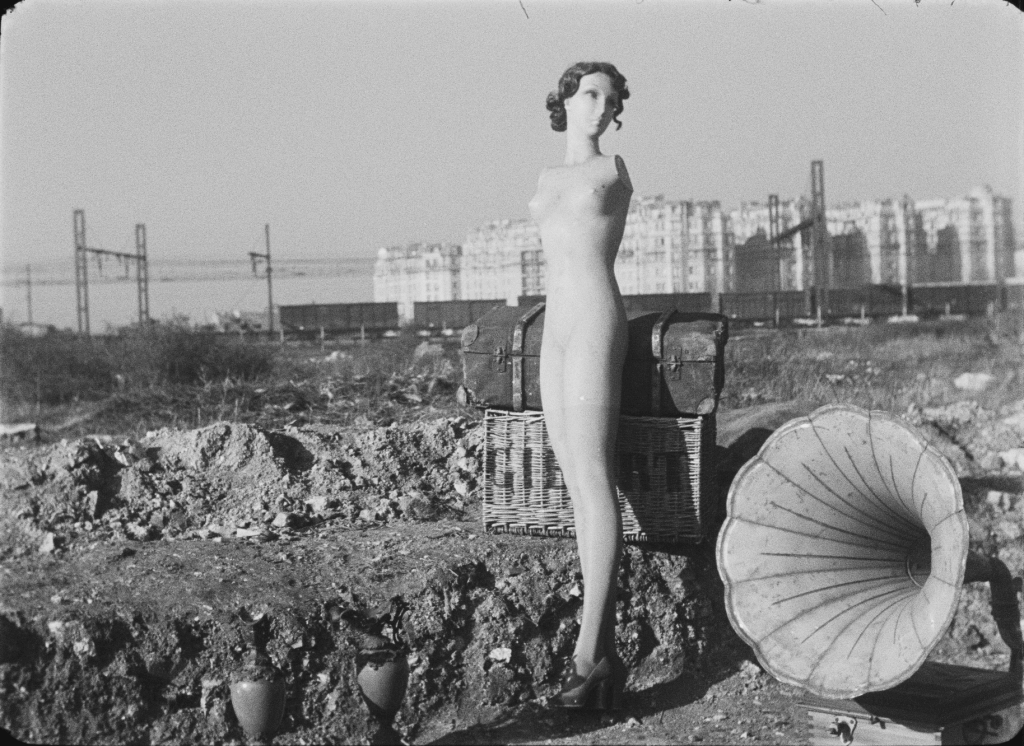
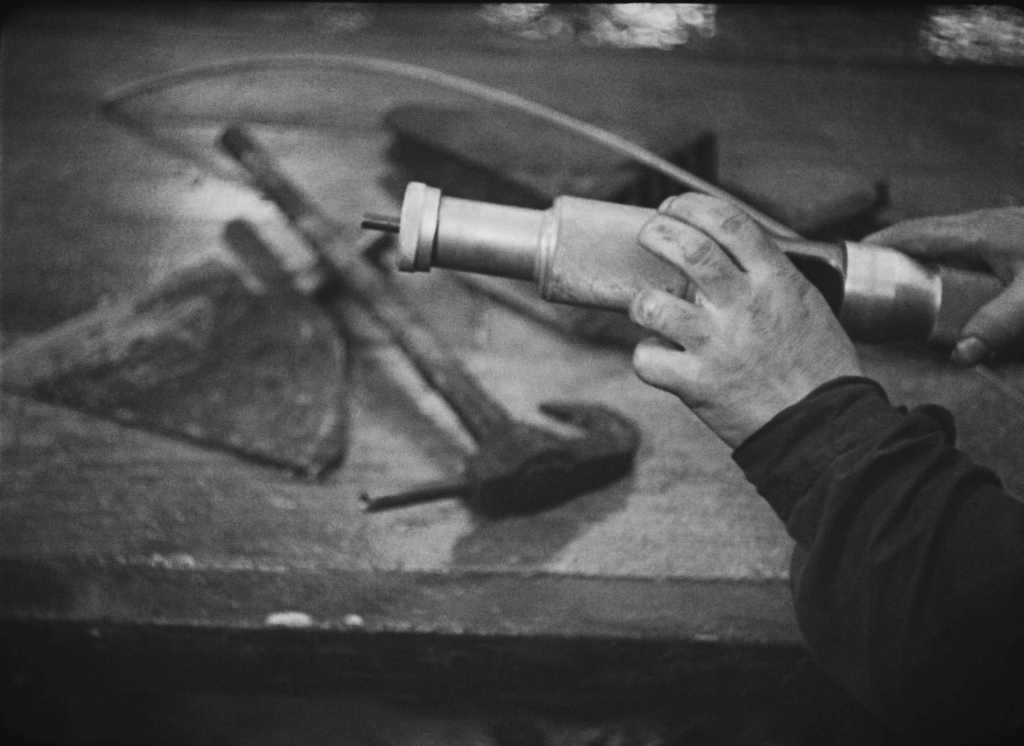
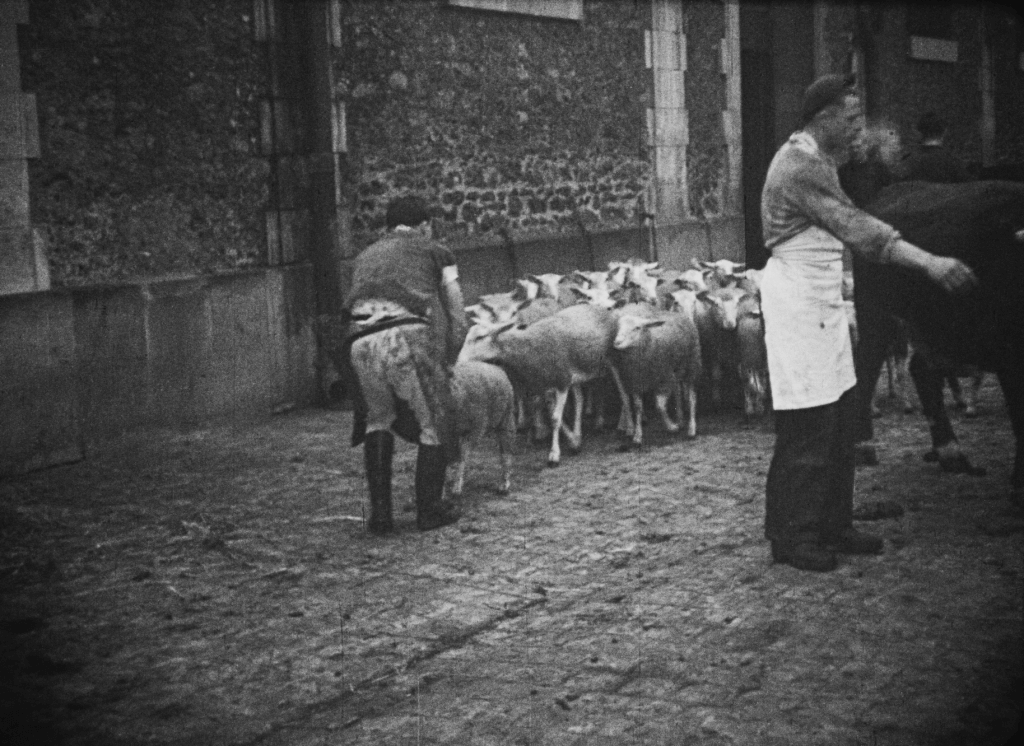
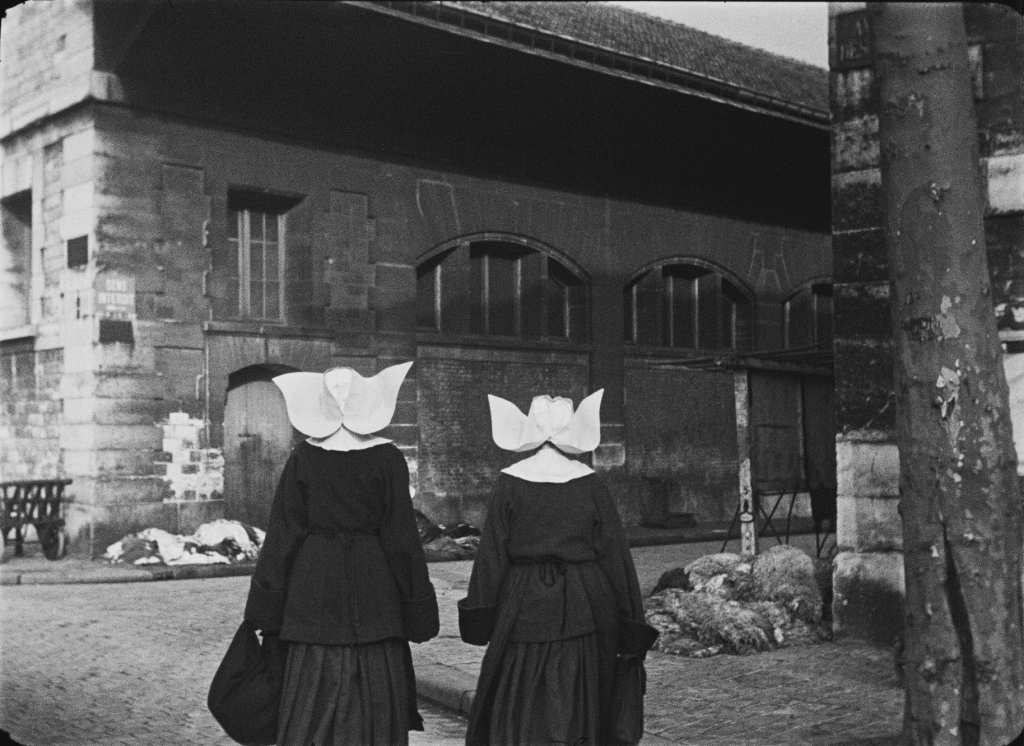
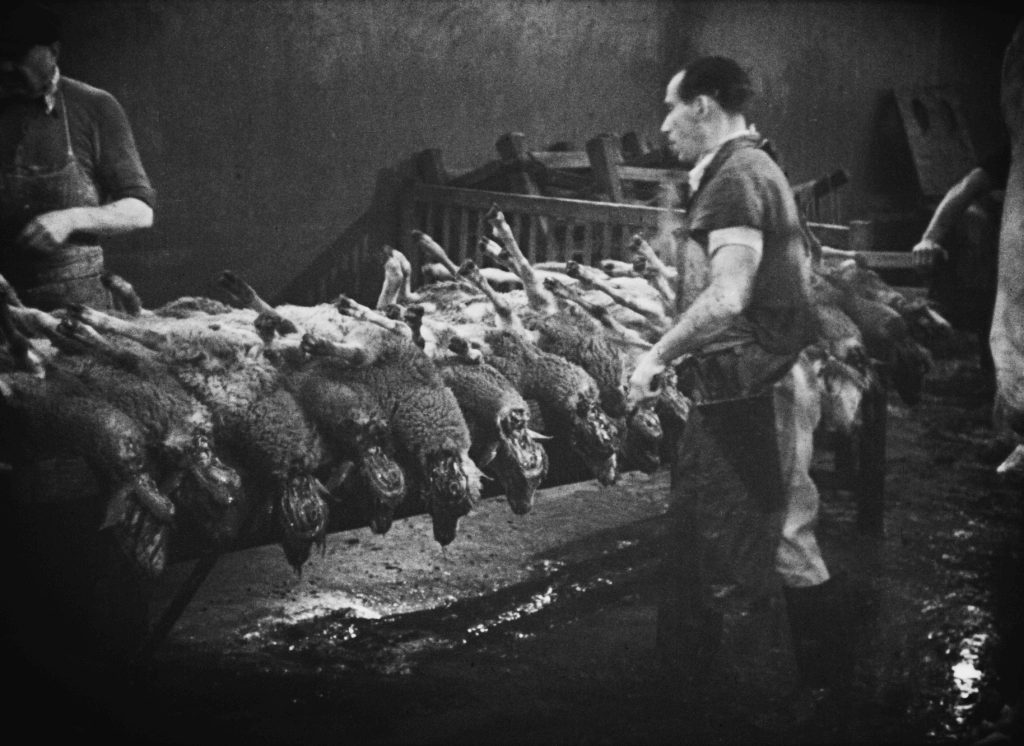
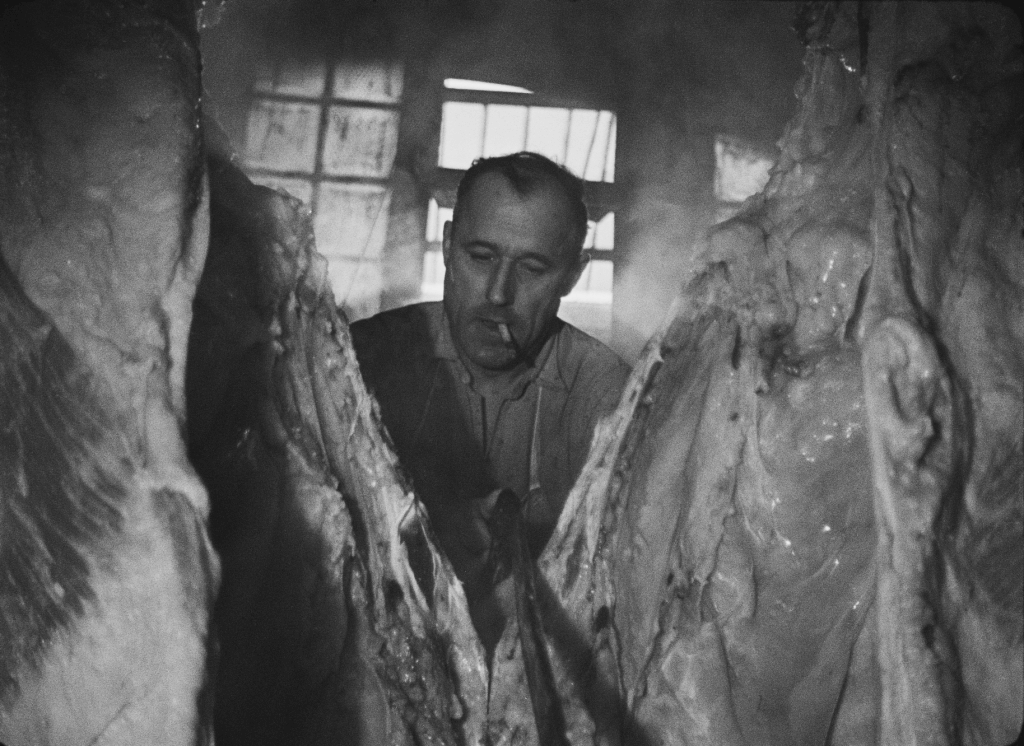
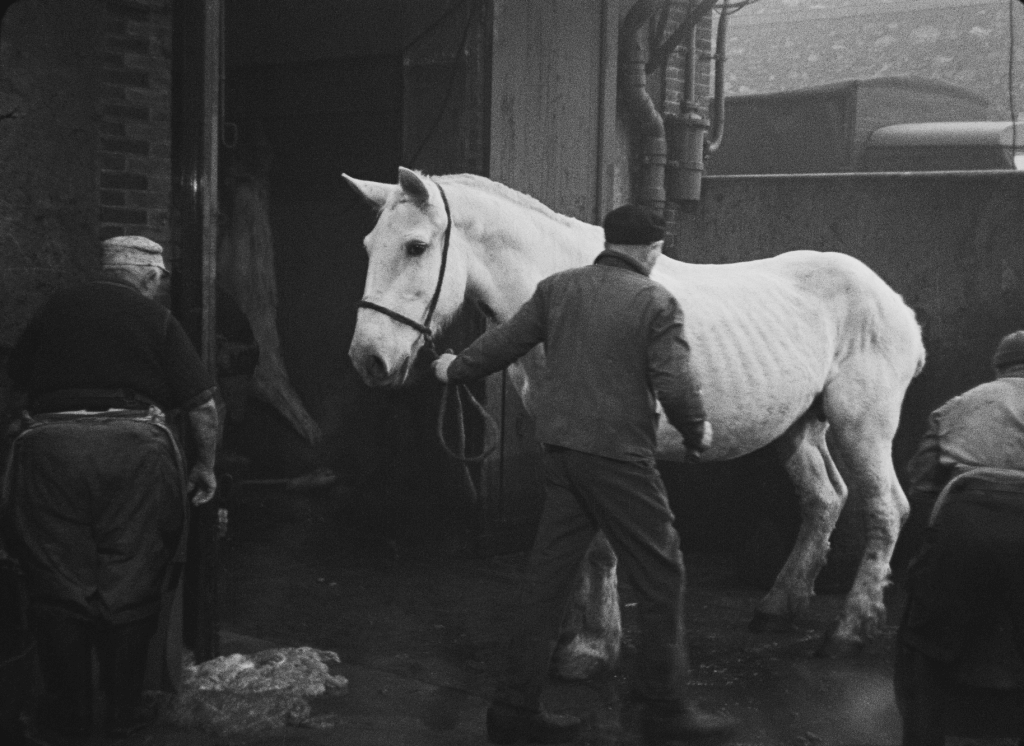
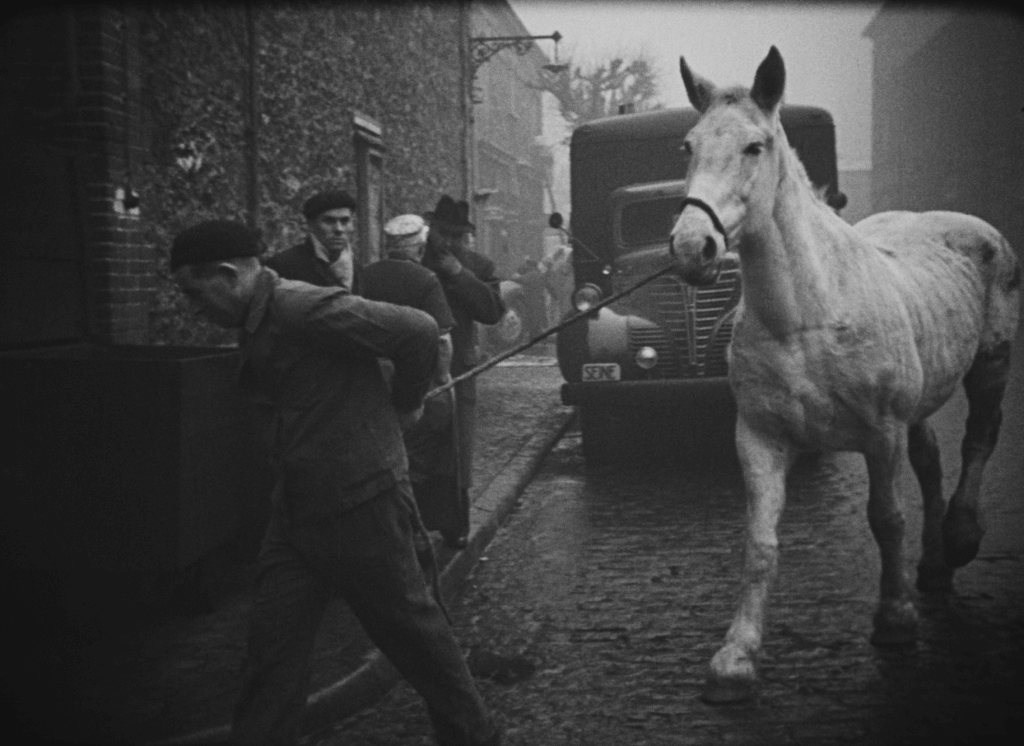
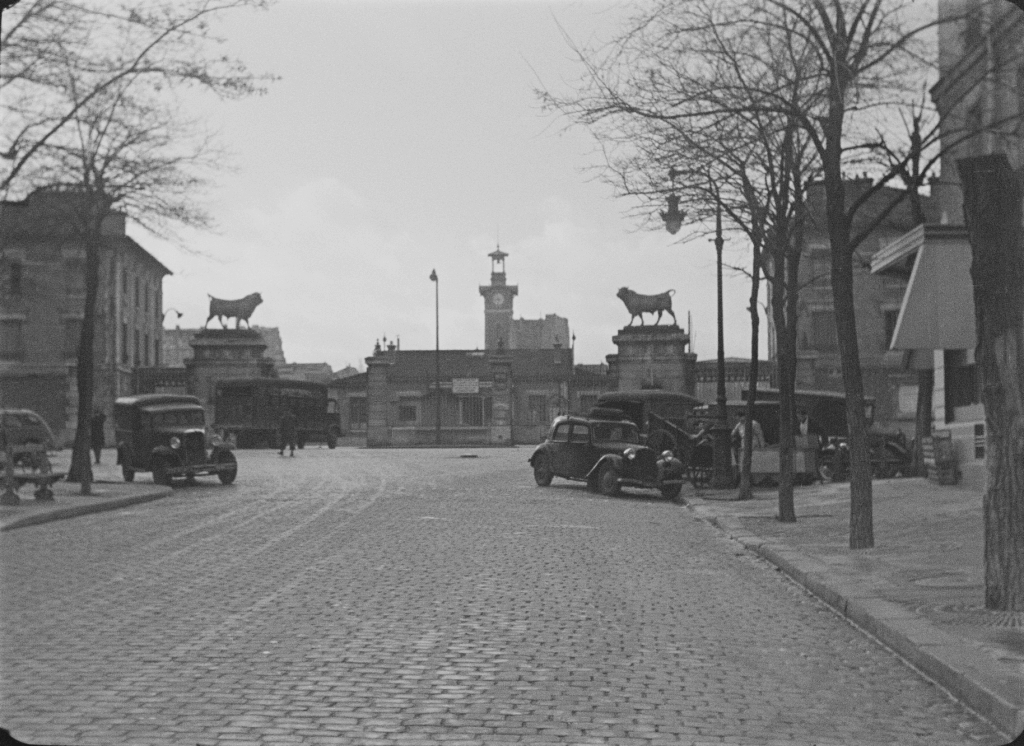
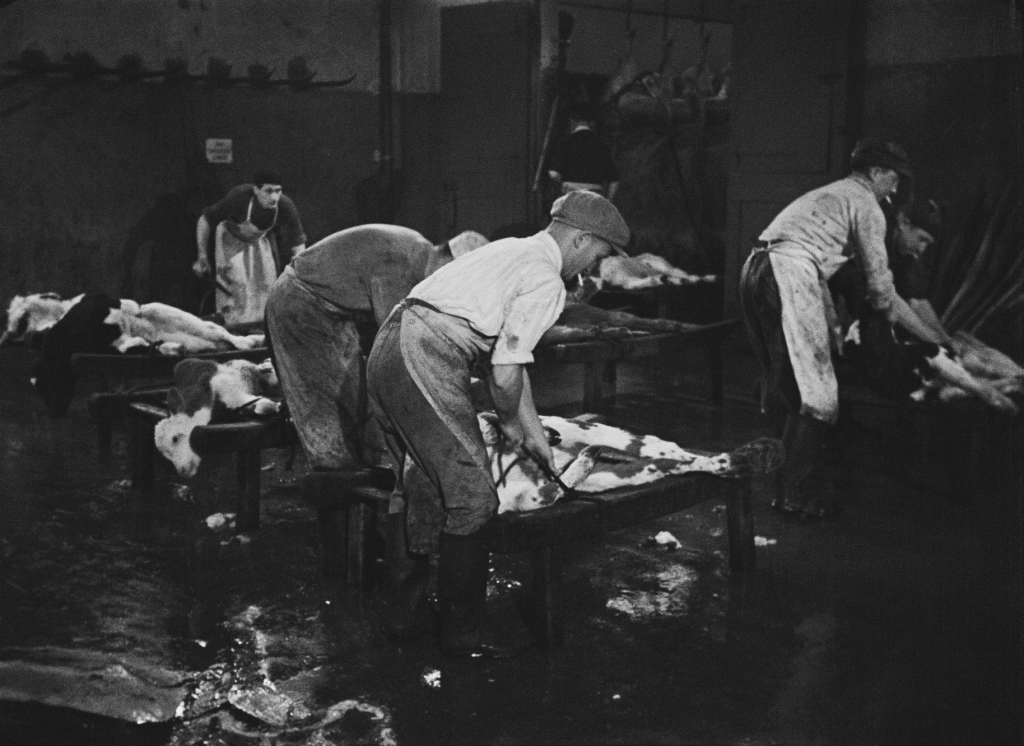
BLOOD OF THE BEASTS is the portrayal of the daily routines of Parisian slaughterhouses. The short film is equally interested in the intrinsic, aesthetic value that the black and white pictures extract from the detailed slaughterings as well as in the desperate situation of the animals.
LEVIATHAN
FR/UK/US 2012, D: Lucien Castaing-Taylor, Véréna Paraval, Doc, 87’, engl. OV with german subtitles, DCP
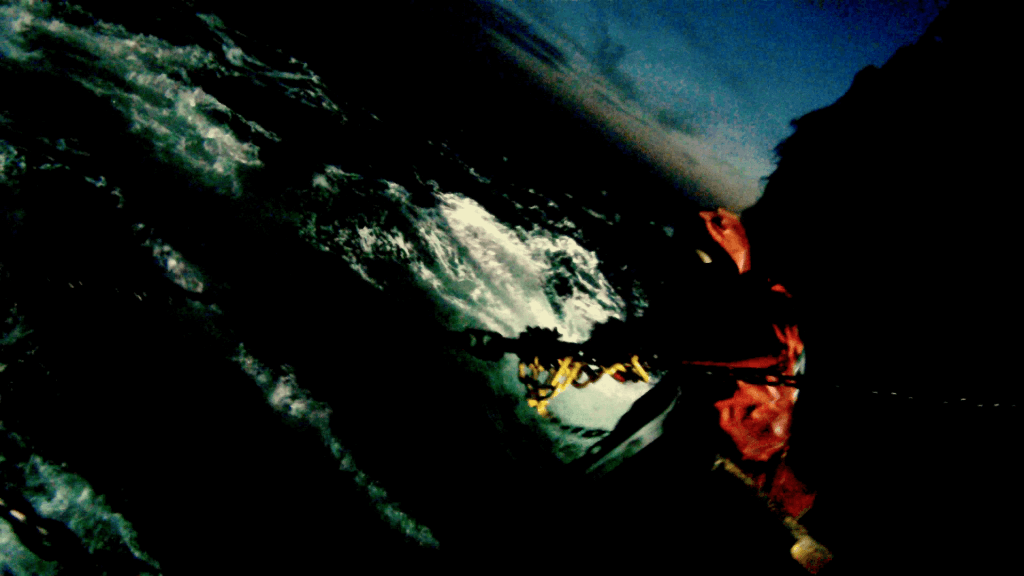
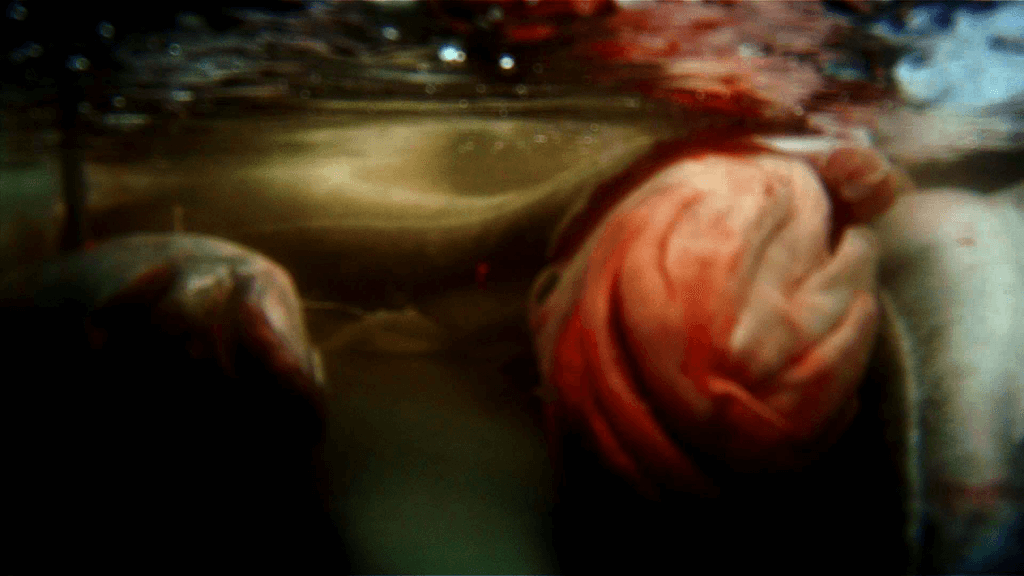
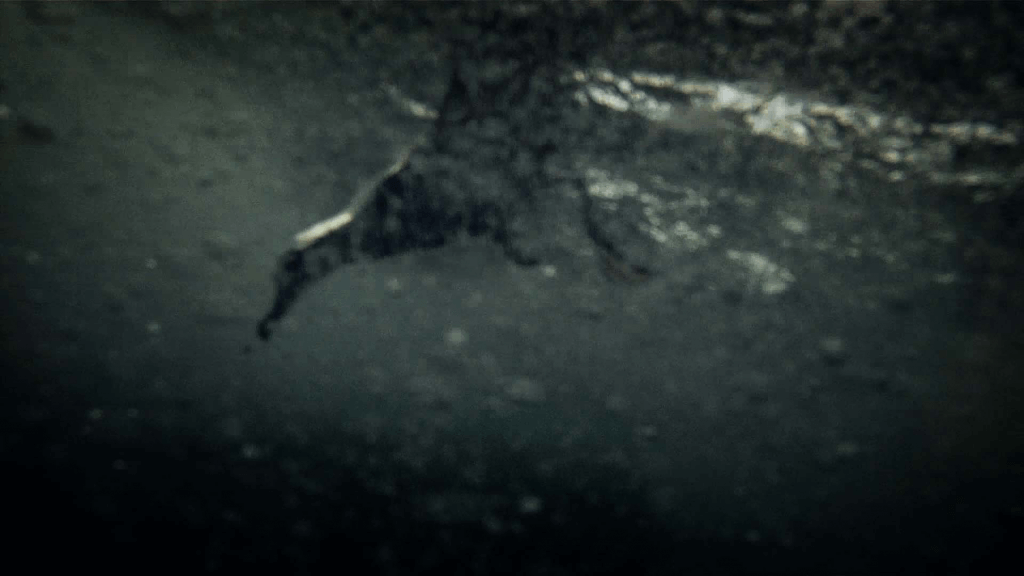
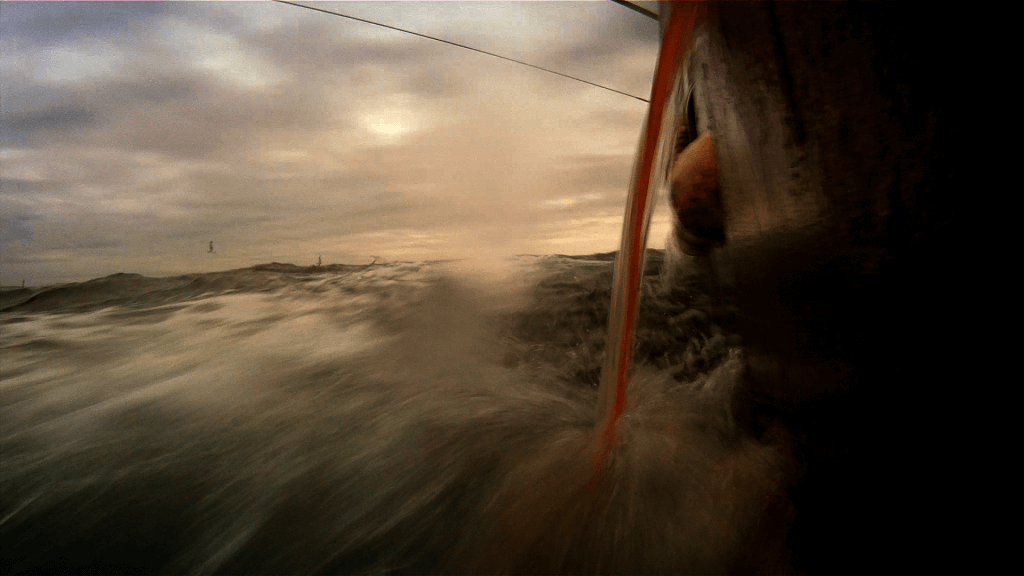
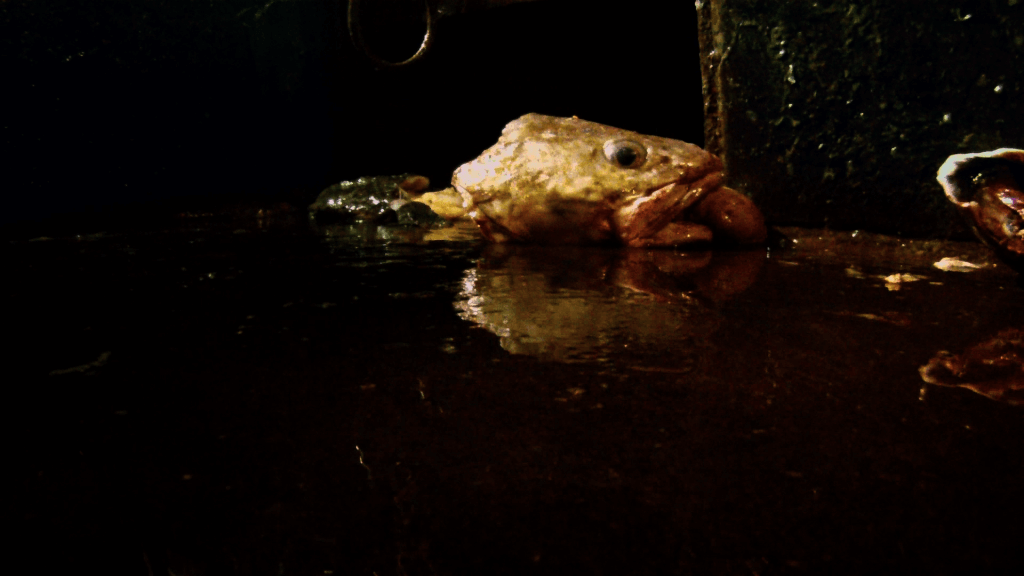
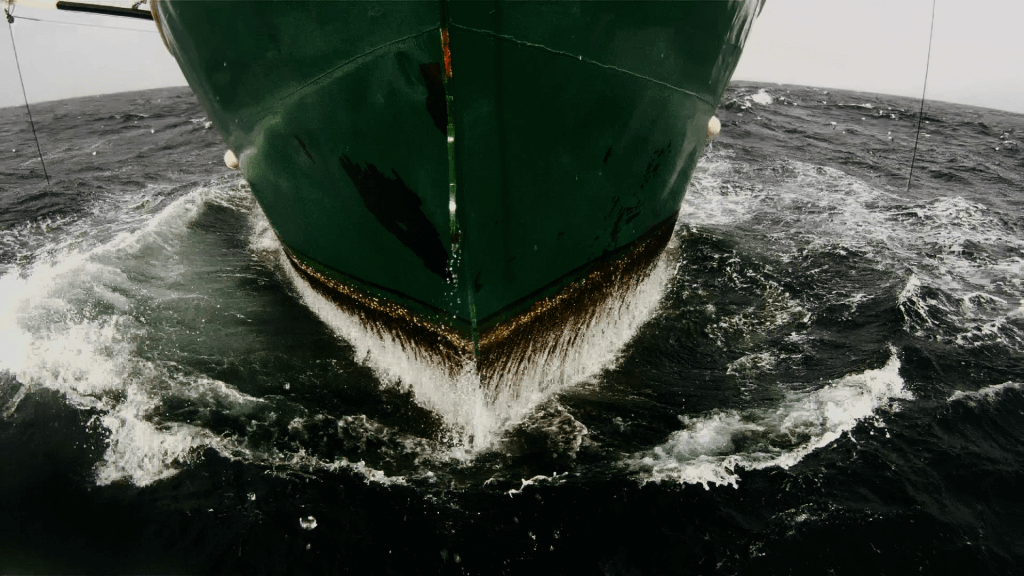
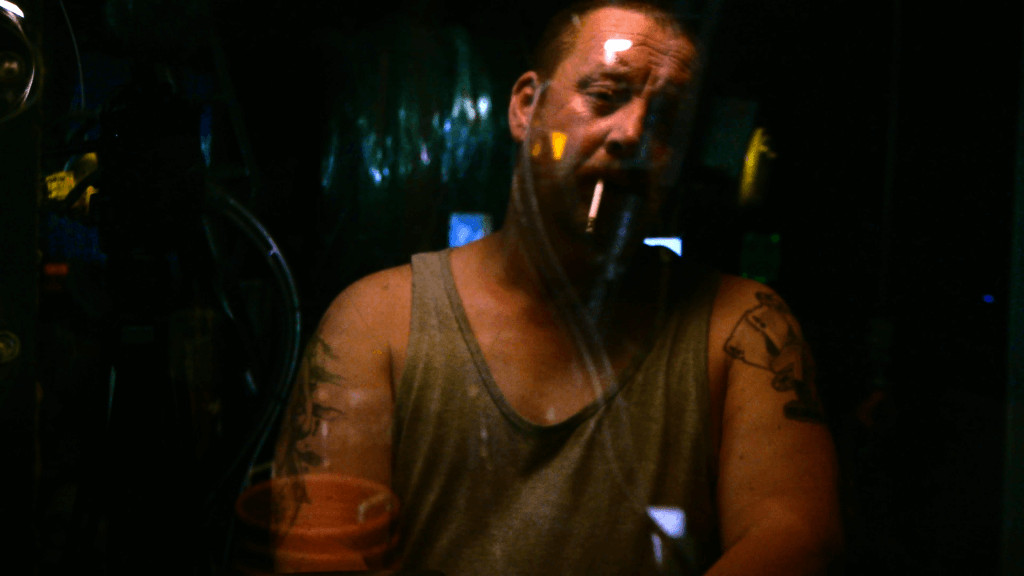
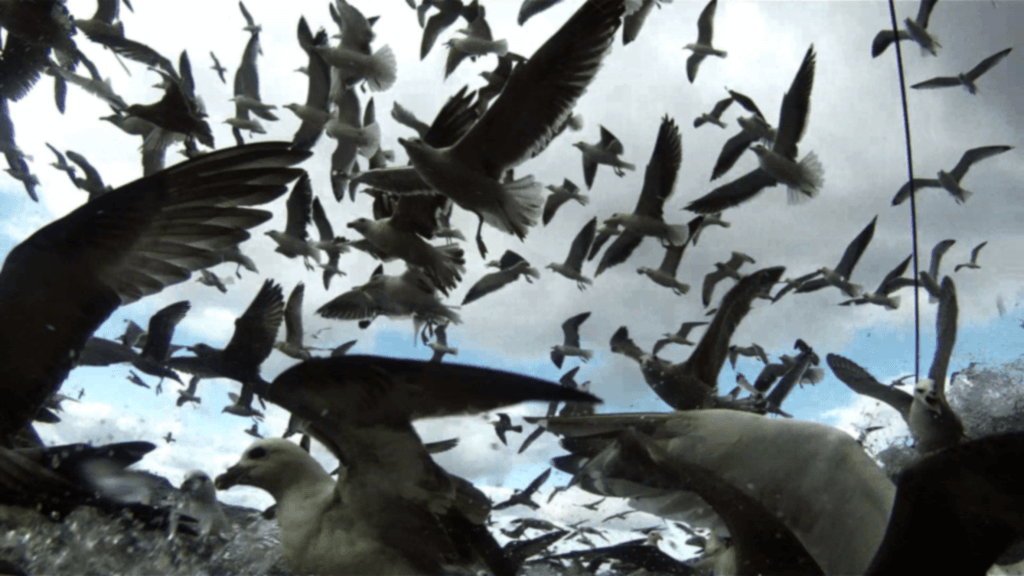
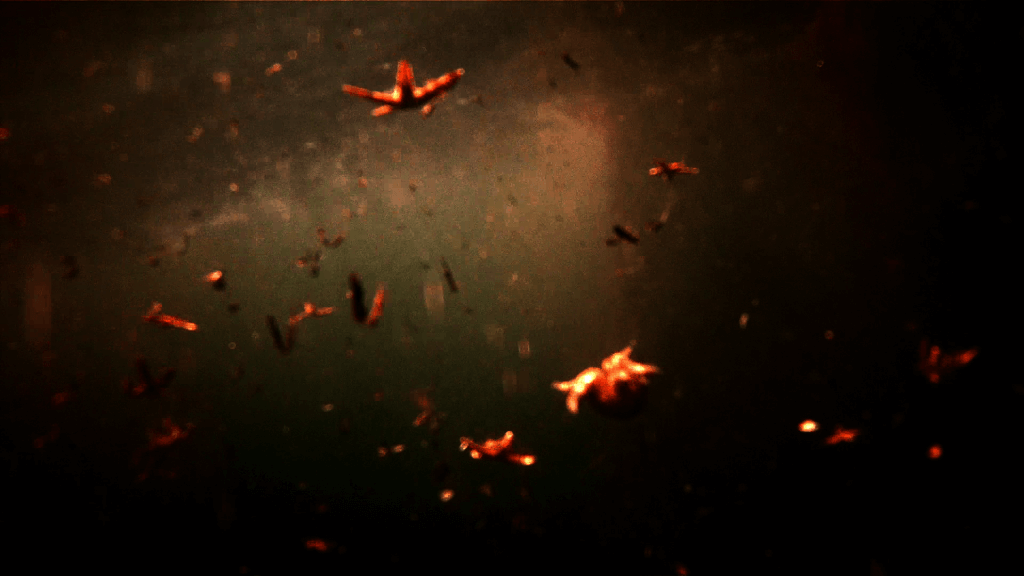
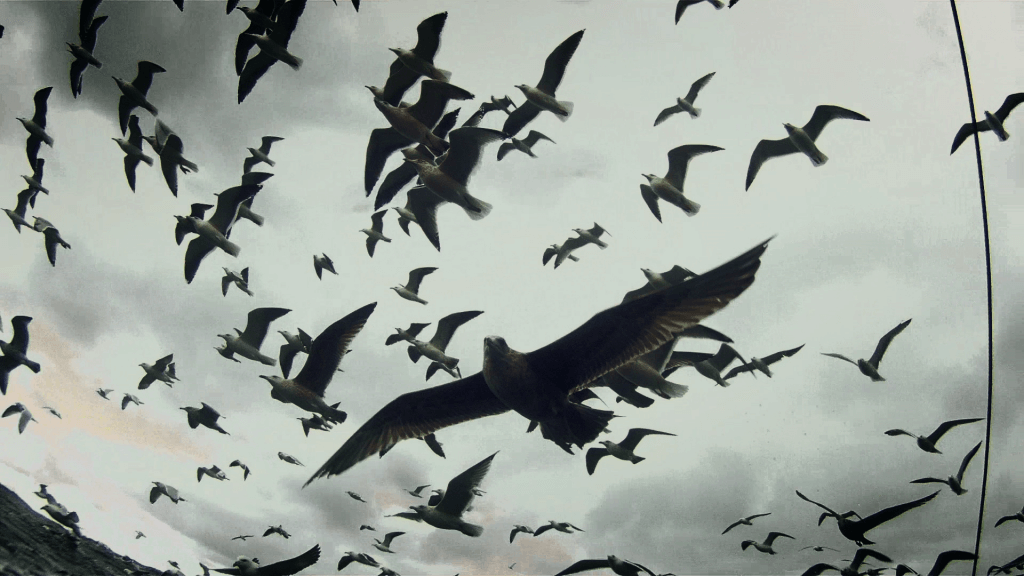
Likewise in LEVIATHAN, the film’s aesthetics enters into a dialogue with the portrayed food industry: at the centre is a high seas fishing boat, but what exactly there is to be seen and heard seems obscured. It is lesser about the understanding of the working processes but to a greater degree about a genuine cinematic experience of this extreme place, in which humans, animals and technology conflate into a kind of mystic symphony.
Sat 16. Sept | ANIMAL REALITIES Luru Kino in der Spinnerei |
| 6 PM | € 6,5 (5,5 reduced) |
Live score | Richard Siedhoff

GRASSI Museum Leipzig is home to the museum of musical instruments of the university. There, behind the screen of the big hall, a rarity of cinema history is towering: a cinema organ made by M. Welte & Söhne in 1929. The so-called Welte-organs were developed as accompanying instruments for silent films. With its multifarious pipe work, a whole orchestra can be imitated. Thus, sounds of oboes, kettledrums, trumpets and castanets can be heard, but also – and this is the actual spectacle: telephones ringing, funfair noises, ship sirens, locomotives and much more. A register of effects enables the musicians to accompany phenomena on screen with sounds that the audience knew from their everyday life that had become modern.



Composed of more than a thousand pieces, the cinema organ of Leipzig was elaborately restored in 2006. Today, only few of the often discarded or war-damaged organs exist – most likely still in film museum contexts, unfortunately only used seldom. In cooperation with GRASSI Museum, GEGENkino wants to revive this venerable as well as impressive cultural technique and at the same time, interlock it with a film culture with which it was originally not connected in any way: the transgressive US underground cinema of the 1980ies.
BEGOTTEN
US 1989, D: E. Elias Merhige, A: Brian Salzberg, Donna Dempsey, Stephen Charles Barry, 72’, without dialog and projected, 16mm


E. Elias Merhige’s (*1959 at New York) low budget film BEGOTTEN is a key work of the post-classic, semi-narrative experimental cinema. In grainy black and white pictures – they seem like they were found on a blurred VHS tape – a fever dream rolls by in front of our eyes. Without verbal intervention, we are catapulted into a shadowy world, in which figures with (depending on interpretation) ancient or otherworldly costumes shuffle through crater landscapes, practice rituals and mutually hurt one another. The sound level of the film is strongly withdrawn compared to the stunning visuality – it consists of a tapestry of drone and other sounds that loosely search for analogies to the things shown. Therefore: obvious to dare a tonal reinterpretation! Doing this with the cinema organ, every button can be pressed: from romantically orchestral support of the pictorial mysticism up to alienating use of the effect registers, everything is possible – and welcome. Director Merhige on our concept: “The combination of the historical cinema organ, a renowned artist like Richard Siedhoff, and my film has the potential to create a unique and profound experience for the audience. (…) It’s truly fascinating and I applaud their innovative spirit.”
SCHENEC-TADY III
DE 1976, D: Heinz Emigholz, 20’, silent, 16mm
Concerning the opening film, we also break new grounds: Heinz Emigholz’s (*1948 at Achim) SCHENEC-TADY III is usually allocated to structuralist films – a conception of film that attends to the cinematic nitty gritty time and space with a mathematical rigour. The way Emigholz’s film arranges silent black and white pictures of a clearing and intervenes in them is not a dry experiment but little short of expressionism on screen.
The pianist and organist Richard Siedhoff accompanies silent films with his own compositions and improvisations in renowned film institutions like International Silent Filmfestival Bonn, Weimar Silentfilm Retrospective and Zeughauskino Berlin. Actually specialised in historical performance practices, he will now divert the cinema organ and push the boundaries of its tonal varieties. Not enough: the analogue-savvy musician will put up his two 16mm-projectors – a pure analogue evening!
| Fri 15. Sept | Grassi Museum |
| 8 PM | € 12 presale / € 14 box office |
IN 2022, D: Sanjay Leela Bhansali, A: Alia Bhatt, Ajay Devgn, Shantanu Maheshwari, 157’, original with english subtitles, DCP
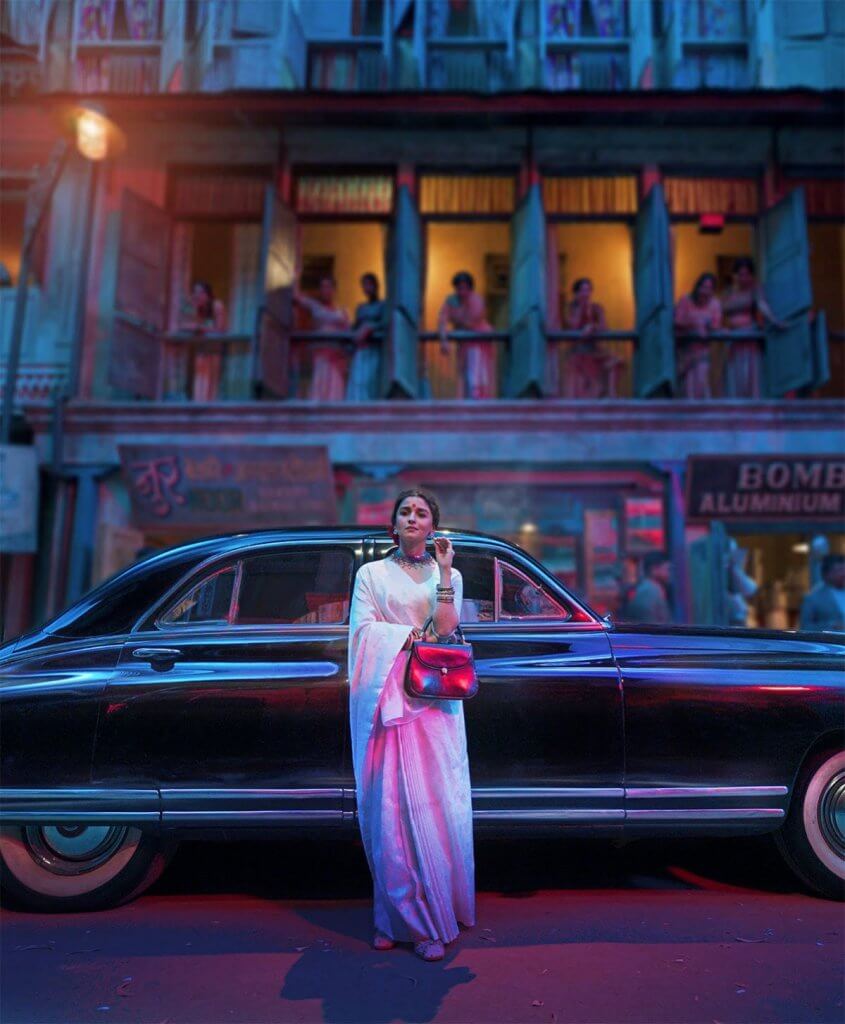

GANGUBAI KATHIAWADI tells of a woman who, in childhood, was sold to work as a sex worker in the red light district of Kamathipura during the 1950ies. Thereby, Gangubai is forced to assert herself – as a human in a ruthless job, as a woman in a misogynistic society and eventually, as a political player who fights against a religiously shaped elite that deprives her of her right to exist.
It is a film full of abundant, sensual stimuli, genre citations and Bolly-wood emotionalism. The obligatory musical sequences are used to contrastingly narrate relationships and feelings of the figures. Even though Alia Bhatts’ depiction of Gangubai does not partake of subtlety, she still performs the heroine with big sway and as much complexity as the form allows.
| Thu 14. Sept | Schaubühne Lindenfels |
| 9:30 PM | € 6,5 (5,5 reduced) |
BR/PT 2023, D: João Salaviza, Renée Nader Messora, A: Ilda Patpro Krahô, Francisco Hỳjnõ Krahô, Solane Tehtikwỳj Krahô, 124’, original with english subtitles, DCP

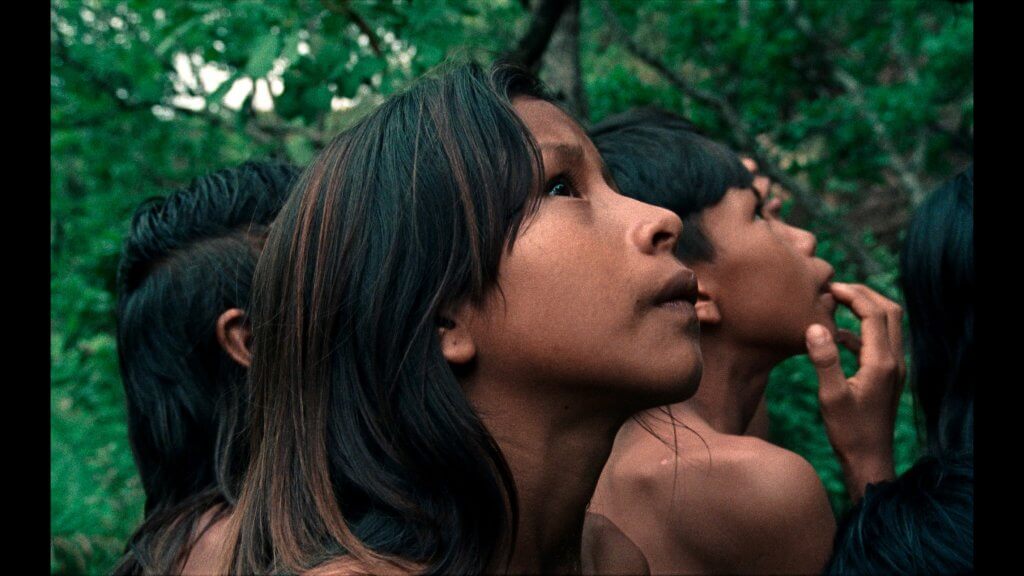


The film centres on the relationship between a mother and her daughter: we see the mother living in the village and doing her daily chores in strolling images – she becomes more and more convinced that a person from the community should represent them at a big conference for indigenous rights in Brasilia. She is worried about her daughter because she cannot sleep and has visions in her dreams that she cannot decipher. As “embedded filmmakers”, the director duo João Salaviza and Renée Nader Messora lived and worked collaboratively with the indigenous Krahô community for over 15 months. From the perspective of the Krahô, the film tells with lyrical beauty about their lives, rituals, memories and dreams – and about their resistance.
| Thu 14. Sept | Schaubühne Lindenfels |
| 7 PM | € 6,5 (5,5 reduced) |
AT/DE 2023, D: Selma Doborac, A: Christoph Bach, Cornelius Obonya, 130’, OmeU, DCP
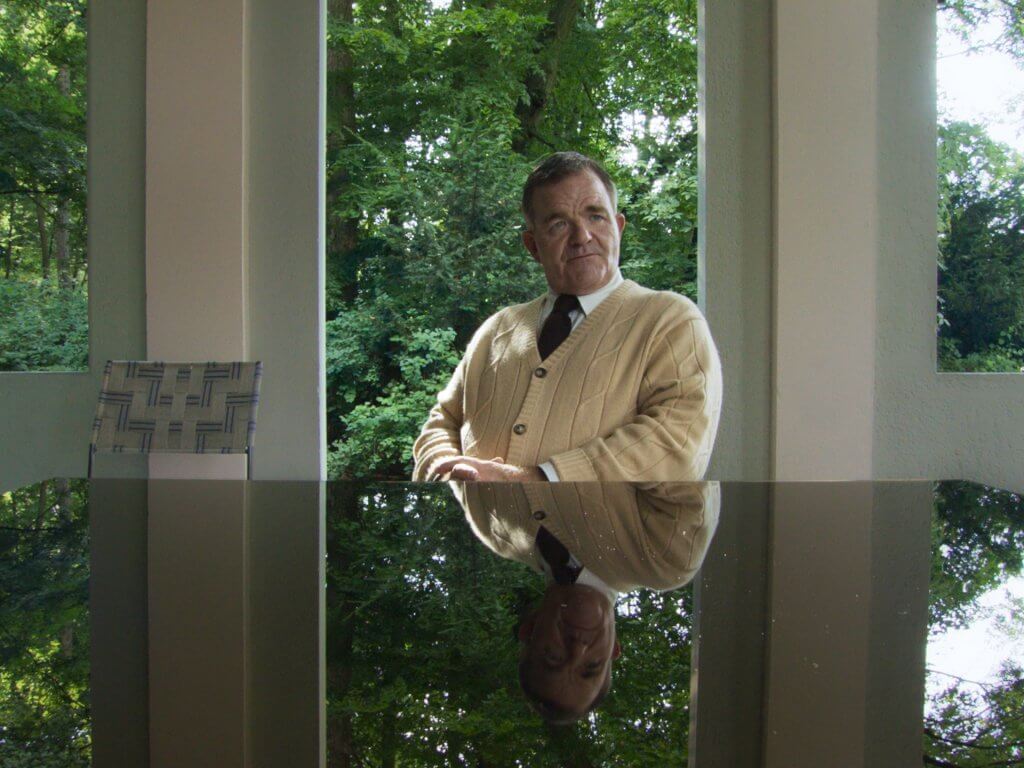



How can cinema engage with complicity in crimes against humanity and extreme violence without conniving in it? DE FACTO finds answers to these questions in a meticulously directed play of two actors, a precisely compiled film script and a deliberately reduced setting. In long and static shots and separately from each other, two actors present texts that refer to concrete forms of dehumanisation and to the perpetration that goes with it. They are based on facts and are presented by the two characters – In the form of court transcripts, perpetrator statements and reports on everyday events.
| Wed 13. Sept | Schaubühne Lindenfels |
| 8 PM | € 6,5 (5,5 reduced) |






